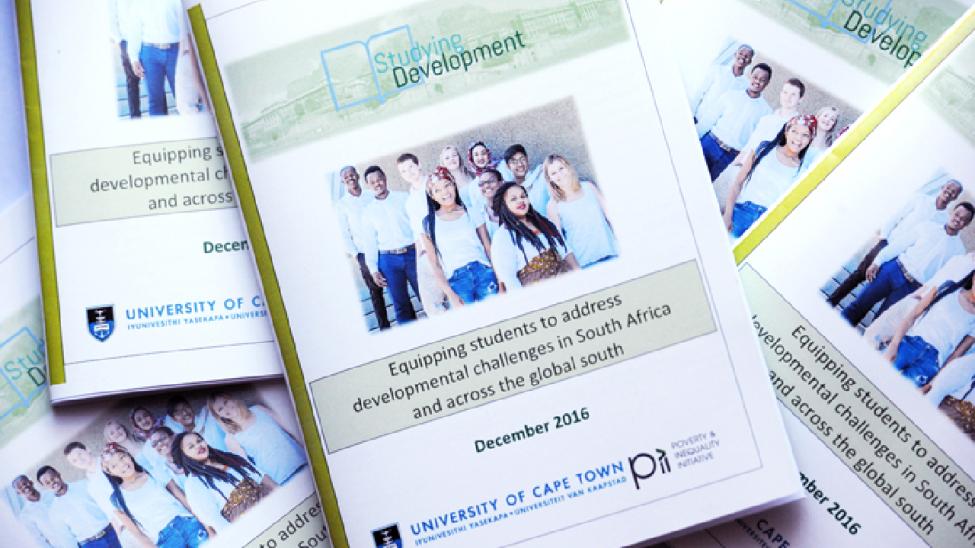Welcome to the Studying Development Website
This website publishes the University of Cape Town's development offerings (programmes and courses).
The website was commissioned by the Promoting Post-graduate Development Studies at UCT Group and was developed through the efforts of the Institutional Planning Department and the Poverty and Inequality Initiative after a booklet listing development offerings (programmes and courses) was produced.
Its purpose is to highlight and market programmes across the university that relate to development. The information about the offerings was extracted from faculty handbooks and websites.
Studying Development at UCT
The study of development or development studies draws on a wide range of academic disciplines, which address the issues facing the global south. This brochure provides information on the full range of the University of Cape Town’s programmes and courses in the area of development. It also provides a guide to the possibilities for interdisciplinary studies best suited to the capabilities and interests of individual students.
The University of Cape Town (UCT) is recognised globally as a leading institution in Development Studies. The QS 2023 World University Rankings placed UCT as 12th globally for Development Studies. The rankings are based on academic standing (programmes taught and research impact) and also incorporate employer perceptions and feedback.
Navigating around the website
This website is divided into 6 main pages. The first introduces the purpose of the website in the About page, the second lists programmes in the area of development in the Programmes page and the third lists individual courses that relate to development in the Courses page. To make the website more user-friendly some useful resources are listed in the Resources page, in addition Frequently Asked Questions with answers are also include in the FAQs page and important contact details like those of the website administrators are listed in the Contacts page.
For ease of use, buttons leading to host faculties are included in the quick links section. All students, regardless of where they graduated, are encouraged to search through the list of programmes and select whichever one that interests them and then find out if they meet the entry requirements or not.
Guide to terminology
The website makes use of the South African National Qualifications Framework (NQF) credit system which is a points system that explains the number of credits that a student requires to obtain a qualification. For example a student may require 180 NQF credits in order to obtain a masters in a chosen field. This means the student must select courses with NQF credits that sum up to 180.
The website also makes reference to the Higher Education Qualification Sub-Framework (HEQSF) level designation. Courses and programmes are ranked according to their competency using this framework. For an example a master’s programme which is an HEQSF level 9 programme may require students to only select courses that are HEQSF level 9.Below the HEQSF levels are explained.
- Level 7: Bachelor's degree, Advanced Diplomas and B-tech.
- Level 9: Master's degree.
- Level 8: Honours degree, Post Graduate diploma and Professional Qualifications.
- Level 10: Doctor's degree
Disclaimer:
While care has been taken to ensure that all development offerings at UCT are included, there may be relevant courses which are not listed. In addition while every effort has been made to ensure that the booklet is accurate and up to date, it is the responsibility of the user to confirm the information from other UCT sources e.g. the faculty handbooks.
The last update was in November 2016




